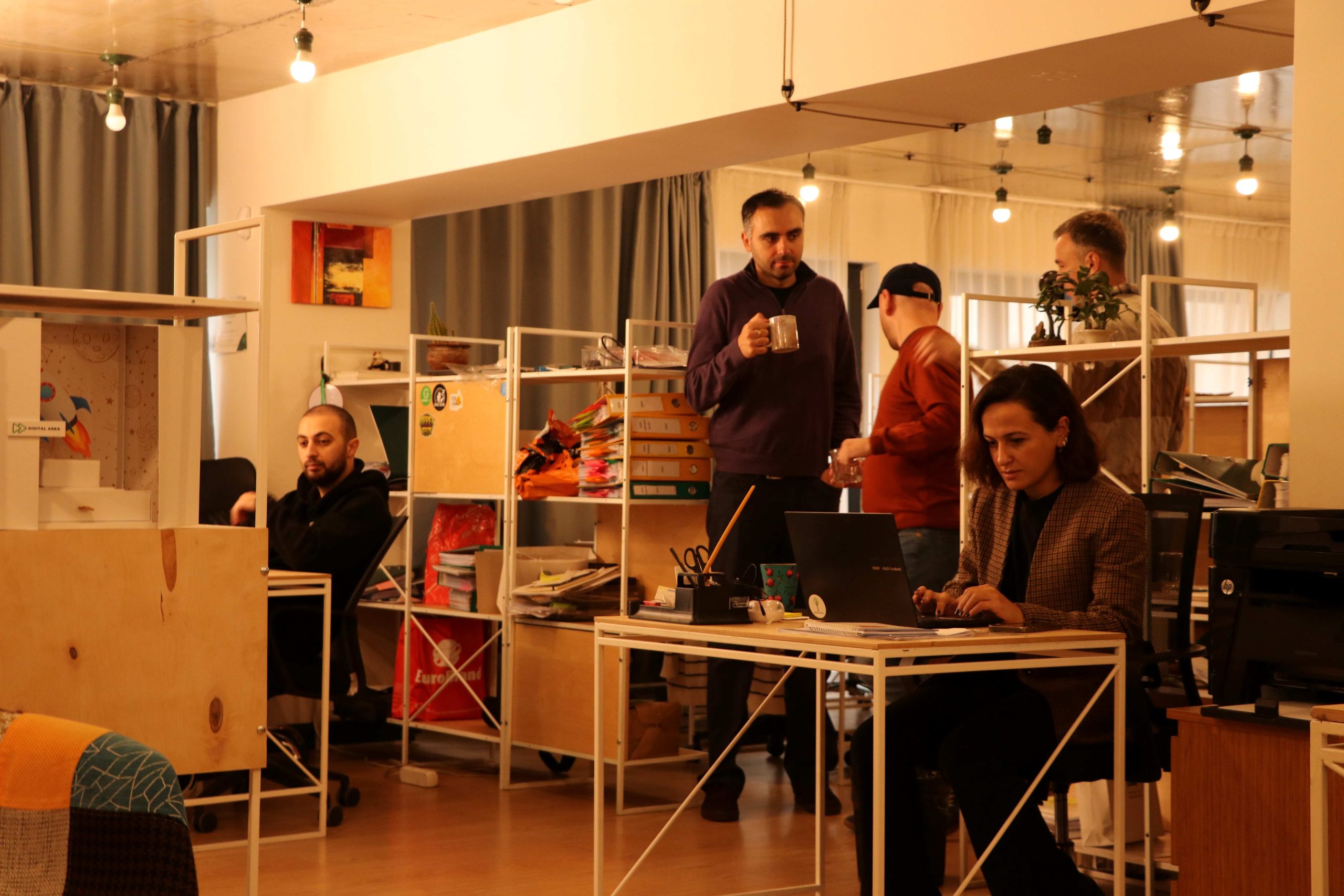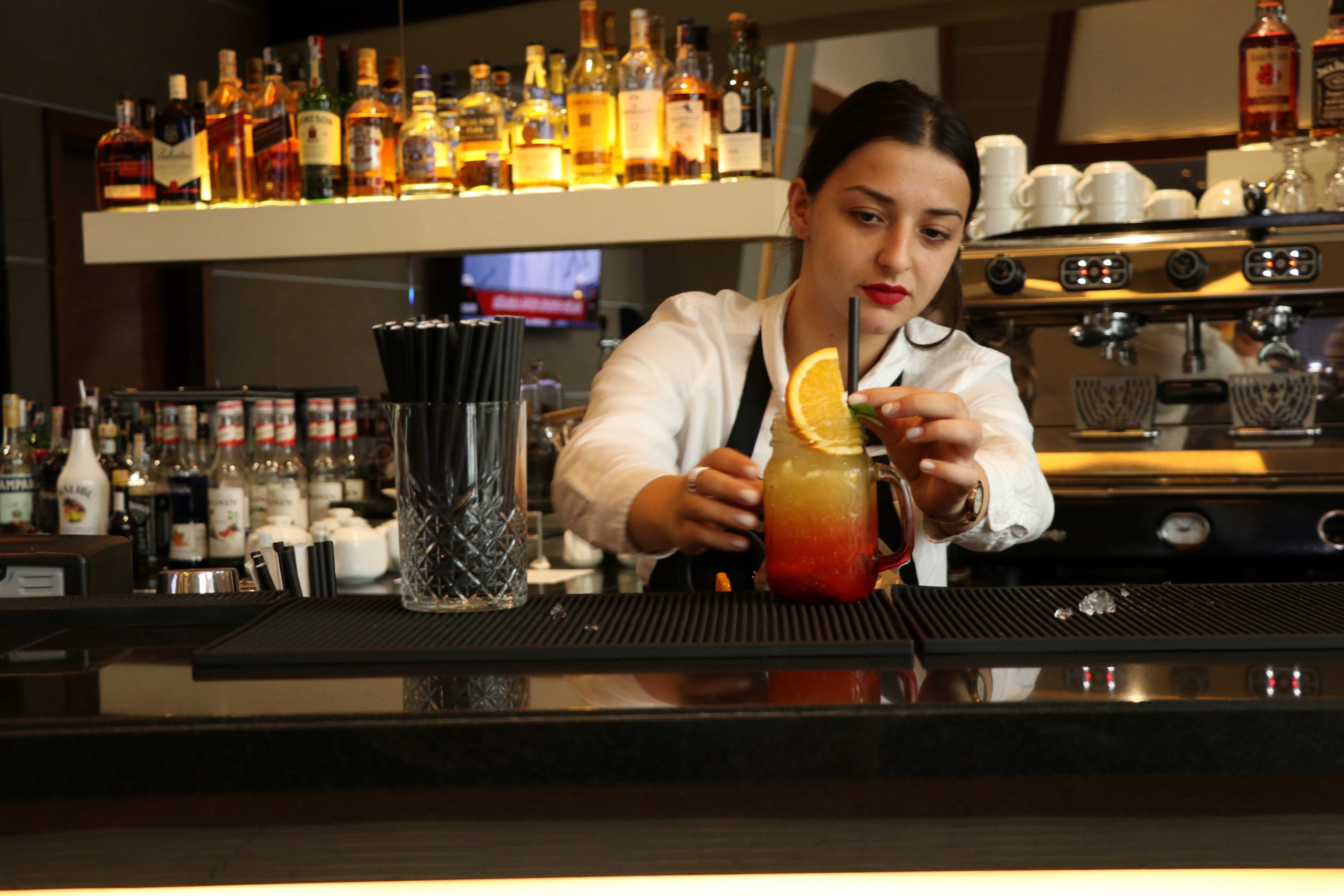Phubber App’s environmental responsibility and campaigns to reduce negative impact
Phubber App
Every year a hundred billion units of clothing are produced in the world; 85% ends up in landfills, and 70-80% of the remaining 15% that people buy, they don’t use. Billions of liters of water are required for the production of this amount of clothing, not to mention other harmful effects on the environment.
“The fashion industry is second place in polluting the environment”, Anano Dolaberidze, co-founder and executive director of the Phubber company, says.
Phubber is the first social trading platform in Georgia. Phubber App is an online application where you can buy and sell used and unused clothes, shoes and accessories.
Ecological policy is an important component of the Phubber concept. The company is constantly engaged in green activities.
In this article you will learn how the first social shopping platform appeared in Georgia; why the fashion industry ranks second in environmental pollution; what is Phubber’s sustainability policy and why the company decided to give water bottles to its customers.
Social shopping
“Social shopping” is very popular in the international market. These are online platforms where users can buy and sell clothes. Such applications include, for example, Vestiaire Collective in France, Depop in Great Britain, Poshmark in America.
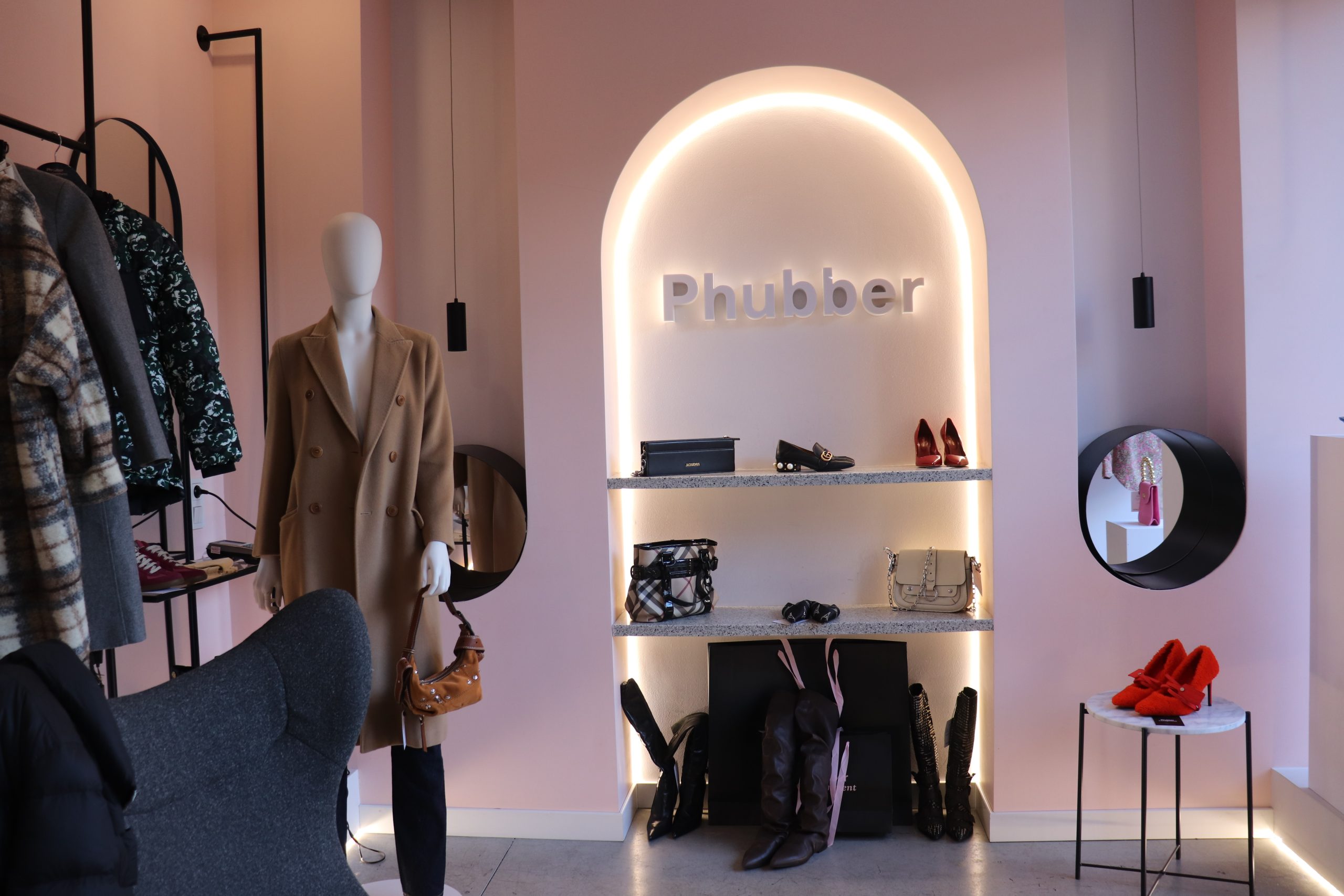
Such a platform appeared in Georgia in 2019, after the marketer Anano Dolaberidze and her friend – Giorgi Chugoshvili started working on the Phubber application in 2018.
This application combines commercial and social angles. The application is a way to sell clothes that someone paid a lot of money for and that they no longer need.
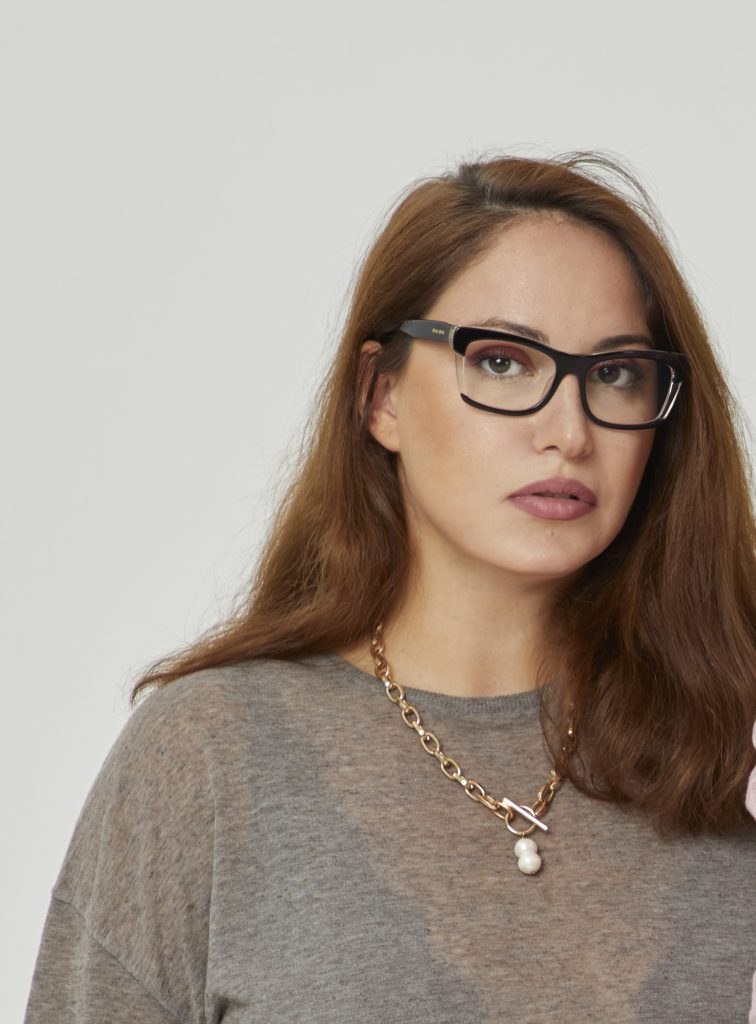
Anano Dolaberidze has worked in fashion for 12 years. She always liked this industry, but the more she reads about it, the more she worries about how much the fashion industry damages the environment.
“Every year in the world, one hundred billion units of clothing are produced, and 85 percent of them end up in landfills. This is an indicator that we do not buy, do not use. During production, oceans and seas are polluted, water resources are consumed in large volumes. And it happens that everything ends up in the dump. If it’s not visible in Georgia, then terrible things happen in Bangladesh, in Dhaka, for example, and in many other cities,” Anano says.
According to her, 70-80 percent of the clothes we buy end up in the landfill: “Since we don’t use most of the clothes, we just buy them and then store them.”
Hence the idea of creating a platform that would allow people to sell clothes they no longer use.
“For us, several components are important: the first is circular (or round) and digital fashion, as well as ethical shopping. We verify all goods, determine their authenticity. “Fake products cannot be sold on Phubber.”
Phubber has more than 200 thousand customers in Georgia alone. The application is already available on the markets of Armenia and Azerbaijan. The app was suspended in Ukraine due tot he war. Phubber created so-called “departments”, divided by topic, for purchasing necessary clothing. In the departments there are collections of Georgian designers, brands presented on the Georgian market, vintage items, authentic brands, and also a section of used goods where authorized users post their goods. The digital marketing application also has the function of social networks. Users can subscribe to news that interests them. Thus they will be the first to see the items that are on sale. The application allows the user to mark the brands that interest them and follow the product. Phubber App is a very simple and convenient application.
Phubber App – Green projects
“We believe that the everyday small decisions make a big difference in the long run,” Anano says.
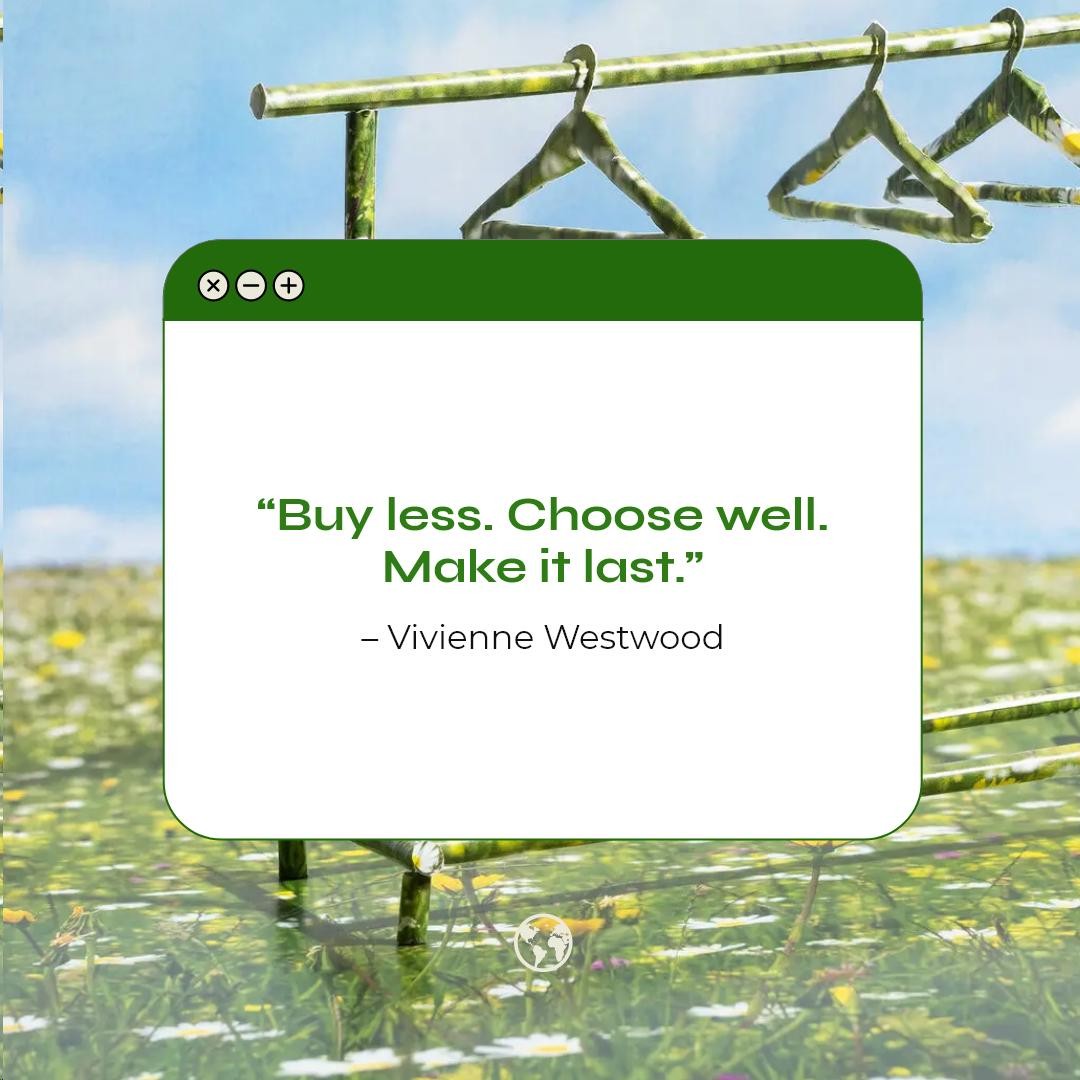
“All through Black Friday, we are holding the Green Friday campaign. The goal is to convey to people that chaotic purchases usually occur on this day. In fact, most people buy things on Black Friday because they are cheap, not because they need them. Therefore our message is – don’t buy too much, and if you buy, then buy on our resale platform,” explains Anano, adding that such behavior is not only characteristic of “Black Friday”, but of New Year’s and other holidays.
- Glass bottles instead of plastic bottles
This year, during the Black Friday week in November, the company decided to send out glass bottles as gifts to customers.
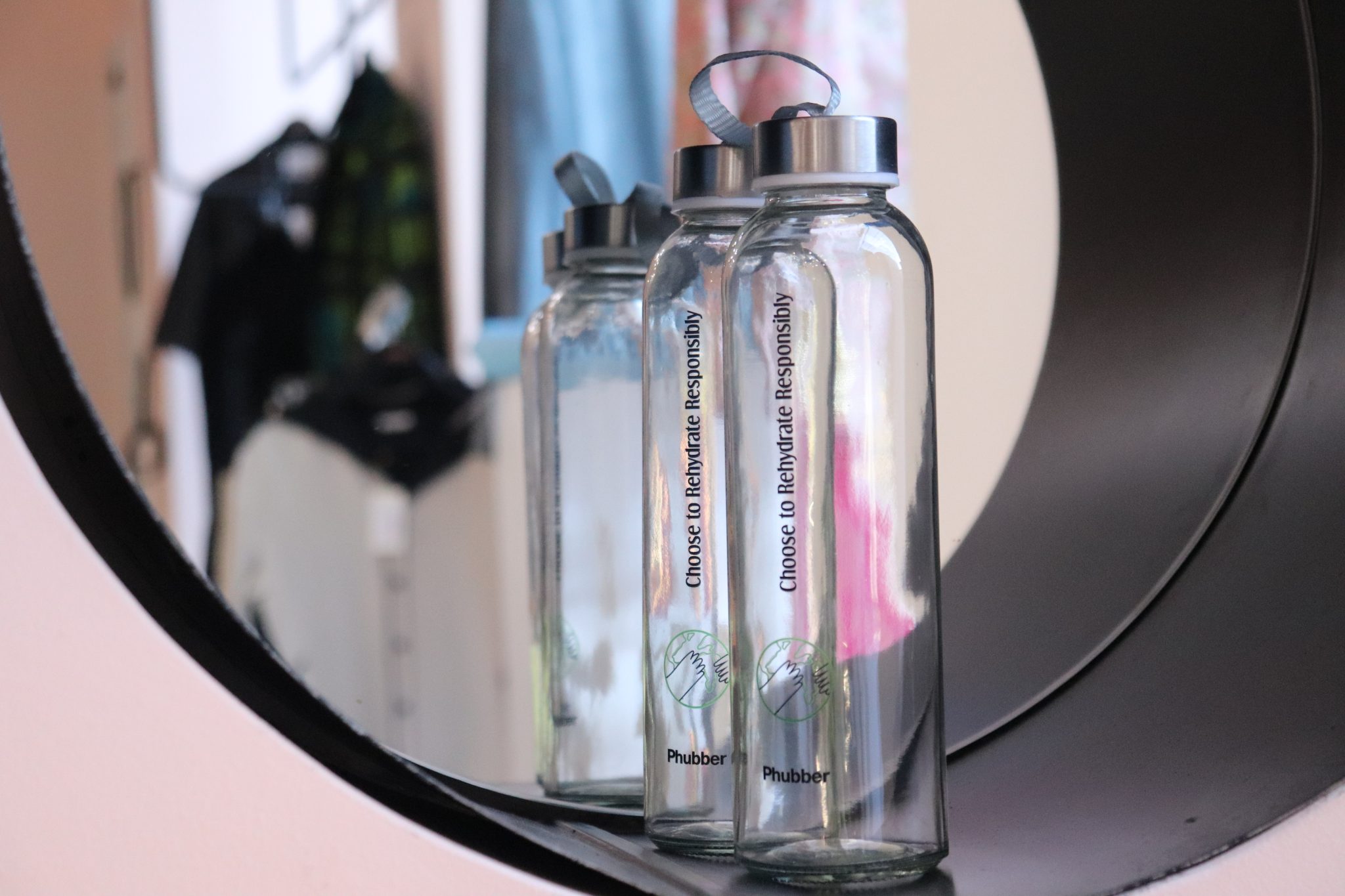
Anano believes that people do not think about the damage they are causing to the environment by accumulating plastic waste. Moreover, plastic remains in nature for the longest time:
“Pay one and a half GEL [about $0.5], drink water and throw away the bottle without even thinking about what you are doing. The solution is simple – if you have a glass bottle, pour water from the tap into it and refuse plastic. If we contribute to the fact that every person has a glass bottle, we think that we will already be one step ahead.”
The company bought about 500 bottles. Together with them, she put different colored hair pins sewn from the fabric of second-hand vintage clothes in the boxes.
- Upcycling – new life for used fabric
Hair pins and rubber bands were not chosen at random. Upcycling is part of a sustainable policy.
Upcycling is the process of transforming waste, useless or unwanted products into new materials and quality products.
Phubber is trying to make this fashionable:
“If you don’t need something anymore or you don’t use it at home, find a new application for it. Even if you can easily transform it, make it suitable for use, and don’t send it straight to the landfill.”
- Seedlings in pots from recycled material
“As part of Black Friday, we always try to make our actions more valuable and meaningful, and we don’t limit ourselves to messages only.”
Last year, along with parcels, seedlings were sent to buyers in small pots made of recycled material.
- “I don’t need a package”
In the list of events of the Phubber application there is also a campaign for the sale of bags. The company sewed fabric bags from used clothes and fabrics.
“Our message was that you don’t need a package. When you buy something, don’t ask for a new bag, use our bag, it’s very convenient.”
Plans for the future
In addition to developing the practice of reselling, Phubber plans to promote the renting and exchanging of clothes.
“If even no clothing at all is produced for ten years, what has already been produced is enough for the whole world.
“As an example, about ten thousand liters of water are required to produce one pair of jeans. Sometimes I ask people to simply check their wardrobe and understand what they use and what they don’t. If it turns out that you have ten pairs of jeans that you don’t wear, that’s a hundred thousand liters of water wasted. Your child, for example, may not have drinking water for five years.”
“We are trying to change the behavior of consumers and their attitude. And we believe that with small steps, step by step, this can be achieved,” Anano says, and gives an example:
“In the 90’s, second-hand clothes were frowned upon, but for many it was the only way to make it through hard times. This experience is still alive today. Especially among people of the older generation.
“When we tried the idea, the reaction was very negative.
“ What will people say if I start selling used clothes?! People say I’m poor,’ “ Anano recalls a friend’s reaction.
“Why should I buy second-hand when there are so many stores and so many opportunities?”
But ten days after launching the application, ten thousand users appeared on Phubber without any marketing.
Anano, full of enthusiasm and motivation for her business and mission, believes it can offer real change to society.
The story is developed within the project “Empowering People for Circular Solutions in Georgia”, implemented by CENN, with the support of the USAID’s Economic Security Program.
Phubber App










